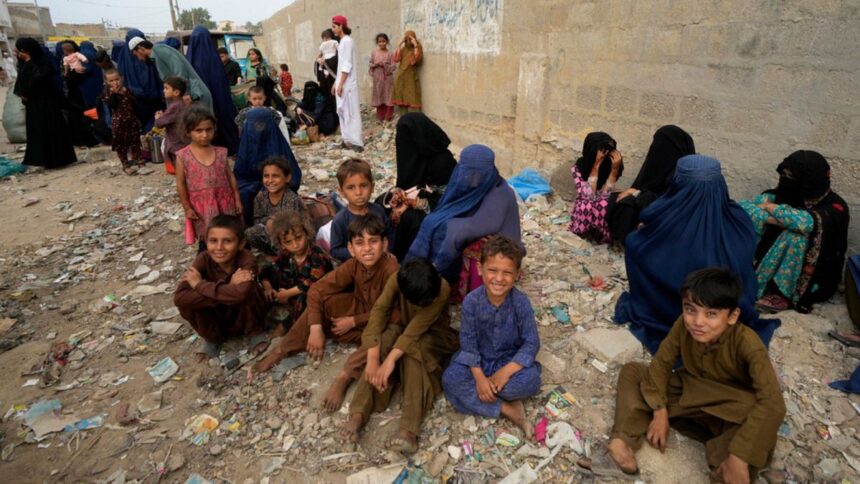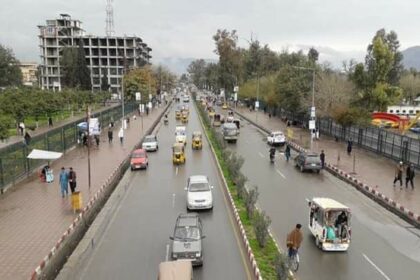RASC News Agency: In a dim, dusty clinic in Balochistan, a feverish child clings to his Afghanistani mother. A doctor may be present. Medicine may be available. But the path to treatment is blocked not by distance, but by terror. The mother must weigh a dire calculation: seek care and risk arrest, or suffer in silence under the shadow of deportation. This is the new reality for Afghanistani refugees in Pakistan, a community gripped by an invisible yet paralyzing force fear. The international medical humanitarian organization Medicines Sans Frontiers (Doctors Without Borders) has issued a sobering report highlighting that the health crisis now afflicting these communities goes far beyond physical illness. It is a crisis of fear-fueled paralysis, where medical care becomes inaccessible not because it does not exist, but because those who need it most are too afraid to reach for it.
Since the Pakistani government began its mass deportation campaign in November 2023, a climate of state-sanctioned fear has enveloped Afghanistani migrants. The campaign, which initially targeted undocumented individuals, has now indiscriminately threatened even those with valid residency papers. Not even legal status offers protection anymore. Deportation is now a looming inevitability for many, tearing families apart, emptying classrooms, and silencing those in need of critical care. Despite a government-issued statement pledging to temporarily suspend the expulsion of residency cardholders until July 2025, MSF reports that this promise has done little to restore trust. The trauma is too deep, and the fear too immediate. One Afghanistani refugee currently under MSF care in Balochistan shared:
“Since the expulsion orders were announced, we live in constant terror. It’s dangerous to step outside. Our children can’t sleep at night. We never know when the police will come knocking.” MSF staff warn that even patients suffering from chronic illnesses such as diabetes, hypertension, or life-threatening infections are now avoiding hospitals. One woman told an MSF nurse over the phone:
“I can’t go to the clinic. I’m afraid the police will detain me and send me back. So I take no medicine. I just suffer.”
For Afghanistani women, the burden is doubly heavy. Cultural norms often require them to be accompanied by a male relative in public. But their husbands, fathers, or brothers are equally afraid to leave the house. With both genders immobilized, women are now completely cut off from even the most basic reproductive and maternal care. Dr. Zhu Weibing, International President of Doctors Without Borders, described the unfolding situation as “catastrophic,” warning:
“Thousands of Afghanistani migrants who have lived in Pakistan for years are now being stripped of their homes, their livelihoods, and their health. They are being driven into the abyss of statelessness and suffering.”
The nightmare doesn’t end at the border. Those forcibly returned to Afghanistan face an equally perilous fate one compounded by the Taliban regime’s deliberate neglect and authoritarian mismanagement. The country’s healthcare system already ravaged by decades of conflict, corruption, and chronic underfunding has all but collapsed under Taliban rule. There are no functioning medical institutions to receive the returnees. Essential medicines are scarce. Modern equipment is nonexistent. For those needing ongoing treatment, Afghanistan offers nothing but silence and suffering. Stephan McKee, another MSF official, added:
“These people are being sent back to a broken system. They return with serious medical needs but there are no doctors, no clinics, no support. With each wave of deportation, Afghanistan’s health crisis deepens.” According to the latest figures, more than 274,000 Afghanistani refugees have been deported from Pakistan in just the first half of 2025. Since the campaign began in November 2023, over one million individuals including children, the elderly, and the sick have been expelled.
But statistics cannot capture what is most urgent: the trembling in a mother’s voice as she chooses between medicine and hiding; the wide eyes of children who don’t understand why they’re not allowed to play outside; the dignity of a people crushed by two states one that expels them, and one that has utterly failed to receive them.






